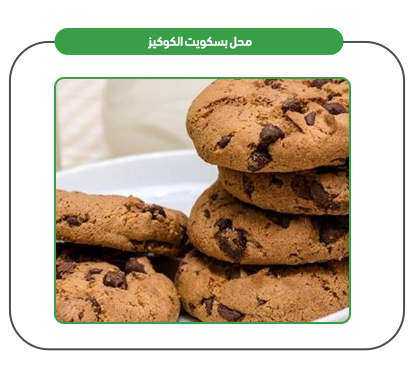mashroo3k Economic Consulting Company offers a feasibility study for a cookie shop project, with the highest return on investment and the best payback period. This study is based on a series of in-depth studies of the Qatari market size, an analysis of local and foreign competitors’ strategies, and the provision of competitive pricing.

Mashroo3k Economic Consulting provides investors interested in investing in a cookie shop project in Qatar with a set of specialized feasibility studies based on up-to-date databases specific to the Iraqi market. This helps ensure the project’s success, achieves the highest return on investment, and provides the best payback period.



High quality and precision in work
Attractive design and stylish interior décor
Efficiency and speed in performance
Elegance in presentation and flexibility in service
Innovation and use of modern technology
High efficiency and excellence in customer service
High-quality raw materials used in preparation
Delicious taste and mouthwatering aroma
Neat and appealing packaging
Product variety with the use of different additives
Variety in sizes and competitive pricing
Creative combinations like double chocolate cookies with milk or white cream
Serving milkshakes alongside different types of cookies
Executive summary
Study project services/products
Market Size Analysis
Risk Assessment
Technical study
Financial study
Organizational and administrative study

Service sector in GCC countries
According to the macroeconomic theory of sectors, the economy is divided into three main and large sectors: the first; – is the sector that is based on collecting raw materials and includes mining companies, timber companies, oil exploration companies, in addition to agricultural and fishing industries. The second sector; is the sector that depends on goods and their sale, such as: (car manufacturing, furniture, clothing trade… etc.). As for the third sector, known as the “services” sector; it is the sector responsible for providing and producing services, essentially relying on intangible things, such as: entertainment, health care, transportation, hospitality, restaurants, etc. This theory believes that the more advanced countries are, the more their economies are based on the third sector, unlike primitive countries, which rely mostly on the first sector (the United States of America, for example, the service sector constitutes 85% of its economy).
Kingdom of Saudi Arabia:
The State of Qatar:
Kuwait:
United Arab Emirates:
Sultanate of Oman:
Global Service Sector
The service sector is the major contributor to the world’s gross product; It alone accounts for more than three fifths of this output. The sector does not rely on the production of tangible goods such as automobile and furniture, but rather on the provision of intangible services such as banking, medical care, transportation, hospitality, leisure, etc. The value of the sector market was estimated in 2020 at USD 10,814.49 billion and rose to USD 11,780.11 billion in 2021. The market achieved a CAGR of 8.9%. After recovering from the effects of the coronavirus pandemic, global market experts expect the sector’s market to reach US $ 15683.84 billion by 2025, bringing the market to a CAGR of 7% in the coming years.
